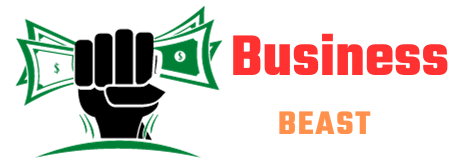The DeHaat business model, which originated in rural India, is an example of how traditional farming and contemporary technology can coexist. DeHaat, a system that meets the needs of rural farmers by giving them access to a variety of agricultural inputs, markets, and information, is named after the Hindi word for “village.” This DeHaat Business Model has revolutionized the way rural communities deal with persistent issues.
Dehaat Business Model Overview
| Company’s Name | DeHaat |
| Type of Company | Agri-tech company |
| Founded in | 2012 |
| Founders | Shashank Kumar (CEO), Shyam Sundar, Amrendra Singh, Adarsh Srivastava, Abhishek Dokania |
| Headquarters | Patna (Bihar, India) |
| Operating Space | B2B (Business-to-Business) |
| Market Valuation (FY22) | Rs.5,692 crore |
| Revenue (FY22) | Rs.1,273.42 crore |
| Expenses (FY22) | Rs.2,850.57 crore |
| Net Profit/Loss (FY22) | Loss of Rs.1,563.9 crore |
| Corporate Name | Green Agrevolution Pvt. Ltd. |
| Competitors | BigHaat Agro, NaPanta, EST Global, Ninjacart |
What is DeHaat?
Adarsh Srivastava, Abhishek Dokania, Amrendra Singh, Shashank Kumar, and Shyam Sundar founded the agri-tech startup DeHaat in 2012. This company’s primary objective is to provide farmers with useful and efficient solutions.
The DeHaat company’s product list provides farmers with products and information to enhance farming. Farm equipment, pesticides, fertilizers, and seeds are all on the list. In addition, it provides crop advisory services such as weather forecasts and farm soil health analysis, among other things.
Farmers can also get financial support from DeHaat in the form of loans and insurance. However, connecting farmers with the market allows them to sell these high-yielding seeds at a price that is sometimes better than the market and occasionally at a fair price. This is its primary service.
Marketing Strategies of Dehaat Business Model
- Field Marketing: Here, DeHaat representatives travel to nearby communities to advertise their goods and services. These delegates are the “field agents,” to put it simply. These field representatives collaborate closely with farmers to offer advisory services and promote DeHaat’s offerings. Events and workshops are also included in field marketing. These are a very powerful tool for advertising the company’s services in rural areas.
- Incentives & Word Of Mouth Marketing: Through referral programs, DeHaat encourages farmers to recommend their friends and family to the platform. As a result, the platform’s user base and brand recognition both rise. Customers refer Dehaat to others in their community if they are happy with the service. As a result, the referral schemes and incentives serve as word-of-mouth advertising.
- Digital Marketing: It assists the agri-tech company in offering its clients specialized solutions and personalizing its marketing strategy. Targeted digital advertising and social media marketing are part of it. Therefore, the goal of these marketing initiatives is to position Dehaat as a dependable and trustworthy partner within the farming community.
Revenue Sources of DeHaat Business Model
- Sale Of Products: The primary revenue stream in the DeHaat business model is the sale of goods and services. It states that sales of farm produce to institutions account for 69% of its total revenue. 30% is generated by selling farmers agri-inputs. It also states that it exports agricultural goods valued at Rs. 65 crore.
- Commission On Sales: This is a significant source of income for the business. A commission is charged by DeHaat on sales of agricultural inputs made via its platform. like manure, seeds, fertilizer, and pesticides, among others. However, the kind of input and the volume of sales have an impact on the commission rate.
- Fee On Services: In addition, DeHaat business model generates income by charging service fees for additional services like crop advisory, soil testing, and farm equipment rentals. DeHaat charges for these services, which assist farmers in increasing their yields and profits.
- Government Schemes: DeHaat collaborates with the government on several agricultural-related projects and initiatives. The business gets paid a fee to carry out these initiatives. Take Madhya Pradesh’s Integrated Horticulture Mission program, for instance. This program was designed for MP farmers. They received financial aid for small-scale farming equipment. Additional instances include subsidies for solar panels and Rabi crop seeds.
- Sell Of Data: DeHaat places a great deal of emphasis on field analysis, as you have just read. It also serves as a revenue stream! DeHaat business model makes money by selling the information it collects from farmers to other organizations involved in the manufacturing industry. Data on crop yields, soil quality, and other pertinent information are included in the data, which businesses can use for market research and analysis.
The Idea Behind DeHaat Business Model
The goal of DeHaat’s business strategy was to offer Indian farmers solutions for agriculture. For this reason, DeHaat collaborated with numerous organic fertilizer and pesticide producers who can offer farmers in India a reasonable price to assist them in raising high-yielding crops.
In addition, DeHaat has given farmers a platform to sell their produce directly to consumers at a fair price in addition to helping them understand how to determine fair prices for their crops. This has increased DeHaat’s revenue as well as that of the farmers.
Value Proposition of DeHaat Business Model
- Quality Supply Services: Farmers can easily and directly obtain high-quality seeds, fertilizers, pesticides, and other agrochemicals with DeHaat. They give farmers all they require for a strong and healthy crop cycle, guaranteeing a robust and healthy yield. To this end, they have reached out to direct producers of pesticides, fertilizer, and agricultural machinery.
- Valuable Farming Tips and Trends: Utilizing satellite data and finished data analytics, DeHaat gives farmers insightful guidance and information about weather patterns, rates, market trends, and crop management. It provides real-time weather information as well as the ideal planting and harvesting times. This supports farmers in making informed choices both before and after crop yielding.
- User-Friendly App: Every farmer can download the simple mobile app DeHaat on their phones; it is available in multiple languages. DeHaat has 1.5 million farmers linked to them because of this. In addition, farmers can easily learn how to use the DeHaat app with the help of customer service, which is accessible through a simple phone system.
Market Valuation And Funding of DeHaat Business Model
- Funding Rounds: DeHaat has received $254.3 million in funding throughout eight funding rounds. On October 21, 2022, they completed their most recent funding round, with Temasek Holding and Sofina serving as the lead investors. With five investors, it raised $60 million in this round.
- Investors: Sofina, Temasek Holding, Lightrock, Prosus Ventures, Peak XV Partners, Omnivore, and others are among the most recent investors in DeHaat. In addition, DeHaat has bought Farm Guide, Vezamart, Helicrofter, and YCook.
- Valuation: With an estimated valuation of over $700 million as of 2022, DeHaat is the most valuable startup in the agro-industry in India. After 2023, they still intend to expand by expanding their operations into more states.
- Revenue Model: Selling customers crops and farm produce is how DeHaat makes money. Additionally, by giving farmers access to agriculturally based products like fertilizers and organic seeds, it warns revenue. In addition, it is stated that DeHaat’s crop exports provide revenue and boost the company’s turnover.
- Growth Potential: DeHaat has enormous potential for expansion as more and more consumers choose to purchase high-yield organic crops. Furthermore, the DeHaat business model has shown to be advantageous for both buyers and farmers. As a result, there are increasing numbers of reasons to use the app.
FAQ for Dehaat Business Model
Q1. What is DeHaat’s overall revenue?
As of right now, DeHaat is reported to have made about 13 billion Indian rupees.
Q2. Who is DeHaat’s director?
Amrendra Singh is DeHaat’s director.
Q3. Who is DeHaat India’s CEO?
DeHaat’s CEO is Shashank Kumar.
Conclusion
The Dehaat business model is proof of the effectiveness of fusing traditional methods with cutting-edge technologies to solve issues that rural communities face. Its emphasis on interpersonal relationships, information exchange, and regional entrepreneurship has positively impacted farmers’ lives in noticeable ways. the Dehaat model demonstrates how significant change can be brought about by combining simplicity, community involvement, and technology that is tailored to the particular requirements of rural areas.








Leave a Comment